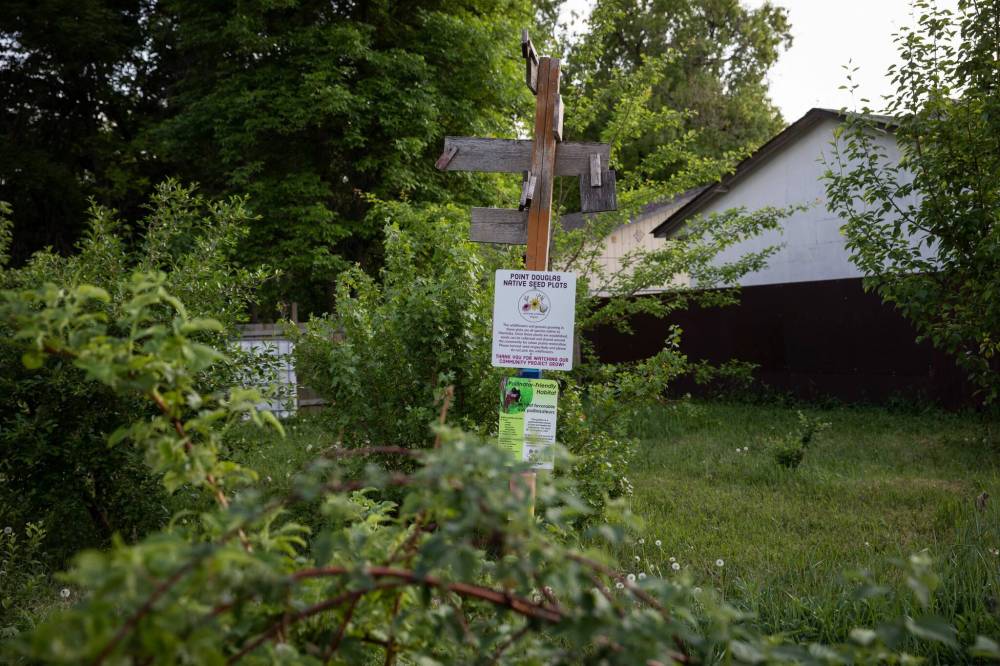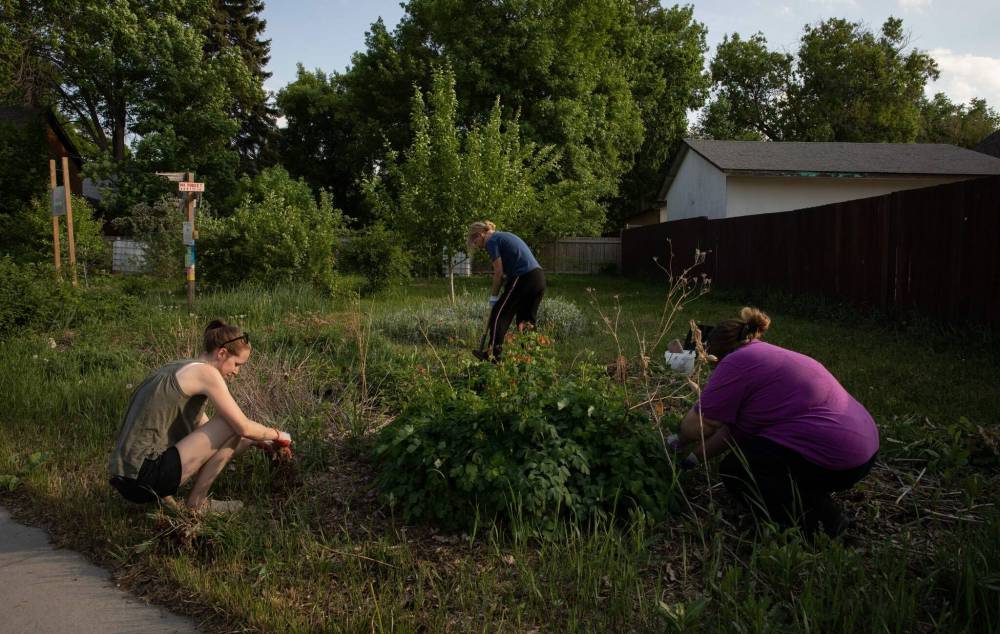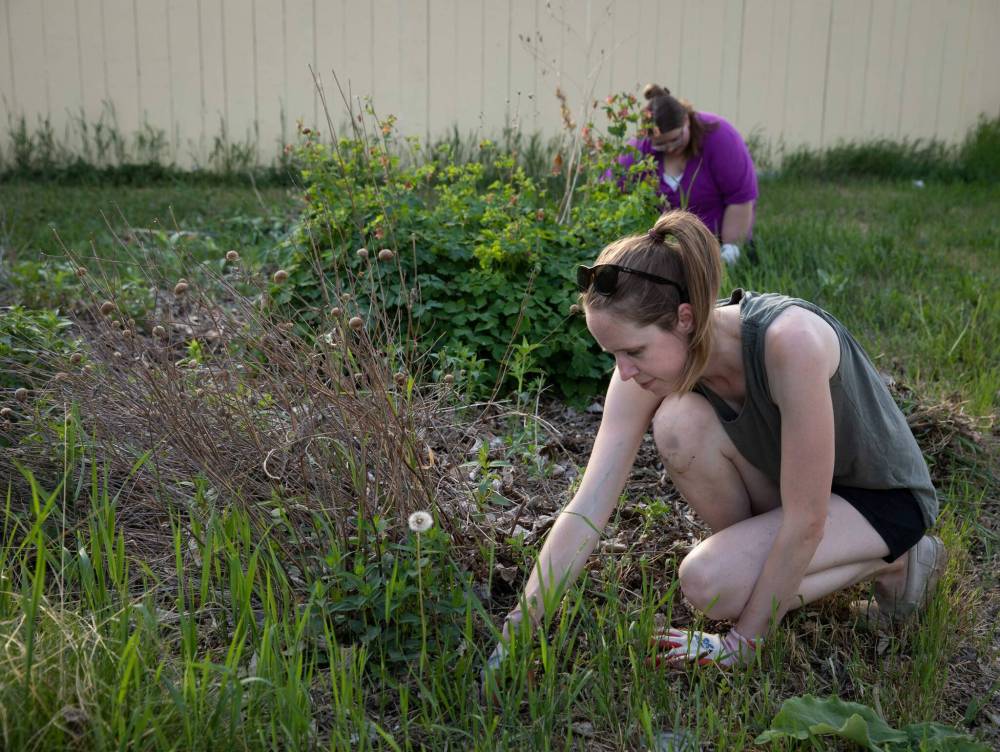Return to nature
Group plants native wildflowers, restores urban spaces
Advertisement
Read this article for free:
or
Already have an account? Log in here »
To continue reading, please subscribe:
Monthly Digital Subscription
$1 per week for 24 weeks*
- Enjoy unlimited reading on winnipegfreepress.com
- Read the E-Edition, our digital replica newspaper
- Access News Break, our award-winning app
- Play interactive puzzles
*Billed as $4.00 plus GST every four weeks. After 24 weeks, price increases to the regular rate of $19.95 plus GST every four weeks. Offer available to new and qualified returning subscribers only. Cancel any time.
Monthly Digital Subscription
$4.99/week*
- Enjoy unlimited reading on winnipegfreepress.com
- Read the E-Edition, our digital replica newspaper
- Access News Break, our award-winning app
- Play interactive puzzles
*Billed as $19.95 plus GST every four weeks. Cancel any time.
To continue reading, please subscribe:
Add Free Press access to your Brandon Sun subscription for only an additional
$1 for the first 4 weeks*
*Your next subscription payment will increase by $1.00 and you will be charged $16.99 plus GST for four weeks. After four weeks, your payment will increase to $23.99 plus GST every four weeks.
Read unlimited articles for free today:
or
Already have an account? Log in here »
Hey there, time traveller!
This article was published 05/06/2023 (997 days ago), so information in it may no longer be current.
As Carmen Rohne kneels in the dirt while weeding, she pauses to chat with people walking or biking along the path at the Waterfront Drive community garden tended with loving care by the Winnipeg Wildflower Project.
In the spring of 2019, the organization came into full bloom with the goal of restoring urban spaces by planting native plant species that are critical for pollinators and wildlife.
Rohne said being connected to nature and having the ability to nurture a wildflower garden is not only great for her physical and mental health, but it also brings joy to her community.

JESSICA LEE / WINNIPEG FREE PRESS
On June 1, Winnipeg Wildflower Project volunteers gathered at the Point Douglas garden on Euclid Avenue.
“I’m just happy to make someone’s day by having some flowers there,” she said.
There are six to 10 faithful volunteers who manage five gardens in the city, which are in the Bishop Grandin Greenway, Point Douglas, Transcona, Waterfront Drive and Wellington Crescent neighbourhoods.
The organization has released its June schedule which highlights days to gather at specific gardens at 6:30 p.m., weather permitting.
On June 1, volunteers gathered at the Point Douglas garden on Euclid Avenue.
Those who want to volunteer can show up with gloves and the willingness to connect with fellow gardeners.
Prairie crocuses and black-eyed Susans are two of Rohne’s favourite perennials that grow in the gardens. She says gardening reminds her of spending summers picking and shelling snap peas on her grandmother Meta’s farm in Vibank, Sask.
“It just brings me back to that feeling of security and sense of belonging,” Rohne said.
Wild bergamot is Nicole Webster’s favourite native species in the gardens. Webster, who volunteers as project co-ordinator, spends approximately four hours weeding at two gardens per week.

JESSICA LEE / WINNIPEG FREE PRESS
From left to right: Nicole Webster, Linda Chiappetta and Nora Kuempel pull weeds at the Euclid Food Forest in Point Douglas.
“In doing this program, I have discovered a whole different community of people,” said Webster. “We try to plant a good selection that will bloom throughout the year.”
Planting native species in outdoor spaces has many benefits for the environment such as maintaining healthy soil, reducing erosion, conserving water during drought, filtrating levels of nitrogen and phosphorus from devastating lakes and rivers and removing carbon from the atmosphere.
These plants have roots that can grow two to four metres beneath the soil, as compared to traditional lawn grasses that only reach one inch in the earth. The deep root systems allow native plants to get nutrients, maintain soil health and access moisture during periods of drought.
Webster says wildflowers are easy to maintain because they don’t require much watering and are self-sustainable. Native plants thrive in the local climate and do not require pesticides or fertilizers, which can harm pollinators and wildlife.
Pollinators such as bees, beetles, butterflies, wasps, and birds are essential for supporting life on the planet by contributing to local food production.
Rob Currie, professor in the department of entomology at the University of Manitoba, says it’s a matter of preserving the biodiversity of both flowers and the insects that pollinate them.
“Bumble bees live a long time and need resources in April, May, June, July and August,” he said. “I think what people are starting to do now is provide more habitats for bees in cities, so that we don’t just have pristine lawns with no flowers in them.”
He says more people are letting dandelions flourish in their lawns, they’re keeping stems and leaves in their gardens during the fall which help bees nest, and they’re planting flowers that provide nectar and pollen.

JESSICA LEE / WINNIPEG FREE PRESS
Nicole Webster (right), who volunteers as project co-ordinator, spends approximately four hours weeding at two gardens per week.
“All of those little things make a much more inviting habitat for bees, and I think if we can continue doing that, then the diversity of bees we find in the city will increase,” said Currie.
The Winnipeg Wildflower Project has been funded by the #RisingYouth grant from Taking it Global, the Land Dedication Reserve Fund, TD Park People, and community members through a GoFundMe page.
Aside from volunteering, community members can collect seeds during the Winnipeg Wildflower Project’s spring giveaway. People are also welcome to join in harvesting the seeds in the fall.
“Our main goal is to make native seed accessible to everyone,” said Webster.
tessa.adamski@freepress.mb.ca
History
Updated on Monday, June 5, 2023 6:32 AM CDT: Adds web headline



